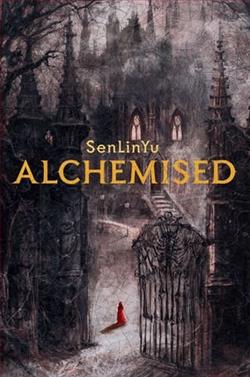Page 10 of Bourbon Girl, part 1 of 6
"Whatcha doing?"
"I'm going to wash Ginger."
"Can I help?"
"It's going to take a while. I'm washing it inside and out."
She grinned. "I'm a good cleaner."
For the next hour, we scrubbed away road grime and the sticky residue of countless bug encounters. Poppy proved surprisingly helpful, tackling the lower sections I couldn't reach while lying on her stomach. She kept up a steady stream of commentary about everything we discovered—a fossilized french fry under the passenger seat, a mysterious stain on the ceiling that looked vaguely like Texas, and my collection of gas station coffee cups.
"You really live in here?" she asked, poking her head through the side door as I organized the interior.
"Yep. Bedroom, kitchen, office, all in one convenient package."
"Where do you keep your computer?"
"I don't have one. Just my phone."
"How do you do research without a computer?"
Good question. I'd been winging it with my phone and whatever free Wi-Fi I could find, but if I was serious about tracking down my father, I needed a better system.
As the afternoon wore on, I found myself really looking at the space for the first time. The van was bigger than I'd given it credit for—about eight feet wide and twelve feet long in the back area. Currently, it was a chaotic jumble of boxes, my roll-up mattress, and random items shoved wherever they fit.
I pulled out a notebook and pencil, sketching rough measurements of the interior walls. "What are you drawing?" Poppy asked, leaning over my shoulder.
"Ideas. If I'm staying here for six months, I need better organization."
"Like what?"
I pointed to the back corner. "Maybe built-in cabinets there for clothes and supplies. And here"—I indicated the side wall—"a fold-down desk where I can spread out papers and actually think."
"Papers for what?"
I hesitated. "Research. For my job."
"Cool! Like a detective!"
Closer than she knew. I sketched a narrow cabinet that could hold hanging clothes, with drawers underneath for smaller items. The desk would need to be sturdy enough to hold books and notebooks, but compact enough to fold flat when I needed the space for sleeping.
"You could put little lights under the cabinets," Poppy suggested. "And maybe a bulletin board above the desk for pictures and important stuff."
"Those are good ideas."
As the sun began to set, painting the sky in shades of orange and pink, I stared at my rough sketches. The improvements would cost money I didn't have, but they'd also give me a real base of operations. Somewhere I could organize my thoughts, map out connections, and systematically work through the puzzle of finding a man whose only identifying characteristic was his connection to the bourbon industry.
"This is going to be awesome," Poppy declared, flopping down on the picnic table bench. "It'll be like having a tiny house on wheels."
I looked at my faded orange van with its rust spots and dented bumper, then at my sketches. Maybe she was right. Maybe I could turn this mobile disaster into something that actually felt like home.
For the first time since arriving in Kentucky, that didn't seem impossible.
July 8, Tuesday
barleytypically malted to provide enzymes needed for starch conversion
I WASbacking Ginger out of my campsite when a blur of red hair and freckles appeared in my side mirror, waving frantically.















